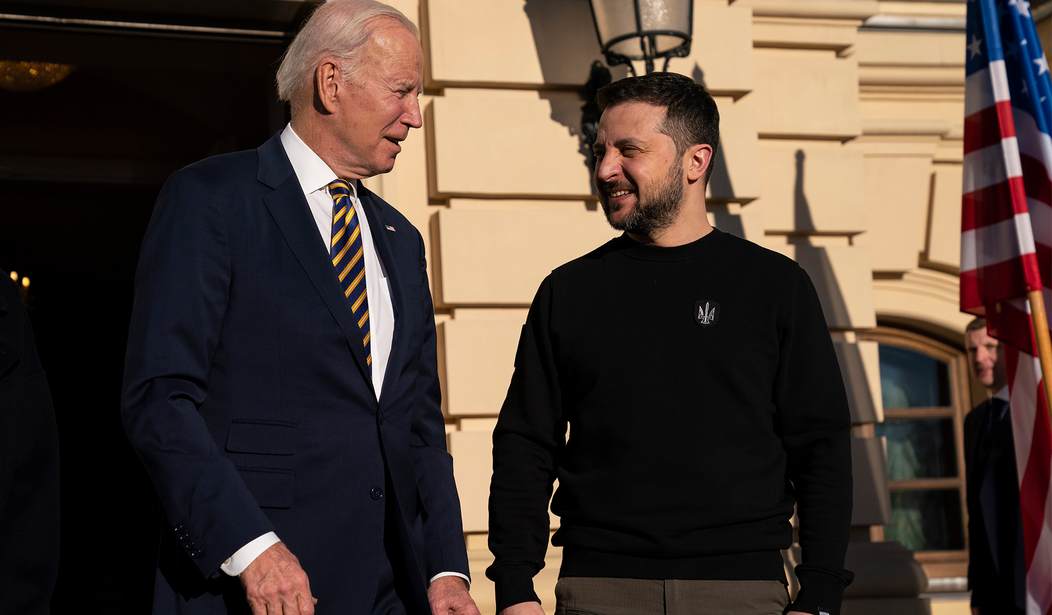The long-promised counteroffensive by Ukraine against Russian occupation forces will begin soon, we’re told. Russia knows this and has prepared a bristling defense against several possible areas of attack.
But some Ukrainian military leaders are cautioning against overhyping the potential results.
“The expectation from our counteroffensive campaign is overestimated in the world,” Ukrainian Defense Minister Oleksii Reznikov said in an interview this past week. “Most people are … waiting for something huge,” he added, which he fears may lead to “emotional disappointment.”
Reznikov can look at a map the same way the rest of us can. Some 500,000 Russian troops are currently focused in Ukraine, with at least 300,000 inside Ukrainian territory along a 900-mile front, Reznikov said. There’s no chance of achieving surprise as there was last fall when Ukrainian troops swept Russia out of Kerson and Kharkiv.
The coming fight is going to be a slugging match — a war of attrition where Moscow holds all the cards. For that reason, Reznikov and other Ukrainian leaders are trying to tamp down expectations. And some Western leaders are looking to nudge Ukraine toward some kind of an exit strategy.
The will to continue supplying Kyiv with tens of billions of dollars in top-of-the-line military equipment is waning. And not just in the United States, where the Republican House wants to take a microscope to the $80 billion we’ve already supplied to Ukraine. France and Germany are also looking to nudge Ukraine toward a negotiated settlement.
Kyiv is eager to make a rapid breakthrough in what has essentially slowed to a grinding artillery war in the country’s east and south, with neither side making significant territorial gains. Experts say it will be difficult, if not impossible, to push the Russians back to their positions before the invasion started on Feb. 24, 2022, when Moscow held parts of Luhansk and Donetsk and the illegally annexed Crimean Peninsula.
The pressure comes in part from Ukraine’s past battlefield wins — first repelling Russia’s attempt to capture Kyiv and later dislodging the invaders from strongholds in surprise attacks in the Kharkiv and Kherson regions.
“We inspired everywhere because the perception was that we will fall during 72 hours,” Reznikov said. But the track record means Ukraine’s partners now have a “joint expectation that it would be successful again,” he said.
This is Ukraine’s last chance to try and convince Western leaders that they can achieve some kind of military victory over Russia. And since all but the most optimistic leaders believe that to be a possibility, the time is now to begin creating the conditions for negotiations.
More and more, Western leaders see China as a potential middleman to bring Russian President Vladimir Putin to the table and, more importantly, convince him it’s in Russia’s interest to strike some kind of deal. China’s President Xi Jinping probably doesn’t want to risk China’s newfound prestige on such a risky enterprise.
But Xi is going to have to learn that Great Power politics requires some risk by the Great Powers. With a little prodding, it’s possible the Chinese could actually play a constructive role in ending the conflict.
In February, China called for peace talks to end the war in Ukraine, outlining its plan in a 12-point document, and casting itself as a neutral mediator.
That same month, Mr. Macron offered in private to Mr. Zelensky to host a peace conference in Paris to negotiate a cease-fire when Kyiv decides the time is right. Mr. Zelensky said he would only participate if Mr. Biden and Chinese leader Xi Jinping attended.
“China will continue to promote negotiations for peace and make its own efforts for an early cease-fire and restoration of peace,” the Chinese Embassy in Washington said in a statement.
European leaders are now confident that China is eager to remain involved in eventual cease-fire negotiations. “In principle, there’s nothing wrong with that,” said Secretary Blinken. “If we have a country, whether it’s China or other countries that have significant influence, that are prepared to pursue a just and durable peace. We would welcome that. And it’s certainly possible that China would have a role to play in that effort.”
For now, the West remains united in seeing Ukraine “succeed,” although the definition of success varies from nation to nation. The coming offensive in Ukraine should give us a better idea of what that definition will be.










